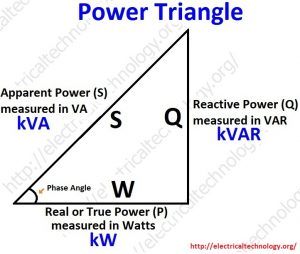Some people think that they know for sure what the differences are. According to my experience only a few people really understand the difference.
Let us dig a bit and get the meanings and the differences in layman’s terms.
Let’s start with the general concepts
We can start with the definitions of different dictionaries.
We can start with the typical use in the language.
We can start with the Latin roots.
Let us take the last one as an origin.
The common root of efficiency, effectiveness and efficacy is the word “effect”. This comes from the Latin word ‘effectus’, which is the participle of the verb ‘efficere’, meaning to complete. In all three cases we are talking about completing tasks and how to do it in the right way.
If we turn to management literature we find a classic reference. The author is Peter F. Drucker, whom is appreciated by many managers as the inventor of MANAGEMENT. He was one of the greatest thinkers of our time and his views seem to be relevant even for today’s companies.
Drucker in 2004 formulated eight practices for top managers who want to work effectively. For example: ask what needs to be done, develop action plans, run productive meetings etc.
If you follow his advice as a manager, you will be able to work effectively.
However to work effectively does not necessarily mean to work efficiently. Efficiency is a different category. It is the easiest among the trio for engineers to comprehend: it is the output achieved / resource used ratio. It is a clear mathematical definition.
Drucker has developed the succinct slogan as below:
Efficiency is doing things right, Effectiveness is doing the right things.
So far so good, but what is the meaning of efficacy?
Efficacy is about the achievement, it does not deal with the „how” aspect, it focuses on the result, meeting the targets. If you search for ’efficacy’ on the web, you can find that most references relate to medical topics, like the efficacy of an intervention or of a product in healthcare.
Aha!
So, you may be effective if you do the ’right’ things but without achievement you are not efficacious.
If you work for example in a disruptive, non-conventional way, you may hit the target (as an efficacious manager) but you are not effective (in the conventional way of thinking).
You can do your job efficiently, if you use your resources economically, while working effectively or efficaciously.
Now I think the differences are pretty clear.
In my professional life however I deal with energy (efficiency) issues. Let’s take a look at that field.
How are the expressions used in the world of energy?
Let’s look at some frequent use of the words.
There is for example the energy flow when applying AC current.
If the linear load in the system is a purely resistive one, voltage and current are always in sync, that means only active power is transmitted. When the load has resistive, inductive, capacitive components (as in the most common cases in real life) voltage and current vectors do not move in sync (there is a phase of voltage relative to current). In this case beside the useful Real (Active) energy appears Reactive energy.

(See http://www.electronics-tutorials.ws/accircuits/reactive-power.html)
„Effectiveness” in this context equals the ratio of Active (real) power to Apparent power.
What about „efficiency”? Efficiency plays a role in every transformation process, one of the best examples is a transformer. Output power / Input power. In energy terms efficiency is a key question. Efficiency is always unitless (%).
The „efficacy” seems to be the most problematic from the trio in the field of energy.
Where does efficacy pop up? For example in the field of lighting. At first glance maybe it’s not too easy to understand.
Luminous efficacy represents how well a given light source transforms the input electrical energy (watts) into luminous flux (lumens). That is the definition, despite the fact that even well established companies in the field try to oversimplify it… (see: ISBN 978-3-902940-22-3). Please, stick to the rule: efficiency is always a ratio, a percentage, so a lm/W value can never be an efficiency measure. If in case of lighting you want to calculate efficiency you should apply a „reference”, that is you have to take the spectral luminous efficacy as denominator in the calculation. The numerator is the luminous efficacy of the given light source, which efficiency is to be calculated of. In practice the efficiency data is not widely used. The luminous efficacy is the main measure in the field of lighting, when we talk about energy efficiency.
There is a very interesting thread of comments related to this topic at http://www.candlepowerforums.com/vb/showthread.php?353933-Layman-s-Terms-Efficacy-vs-Efficiency
What have we established?
In a nutshell we have shown that efficiency is a ratio, effectiveness is about the right methods and efficacy is about achievements.
Now I hope that you can distinguish between these concepts.
Until next time:
Gabor

Leave a Reply